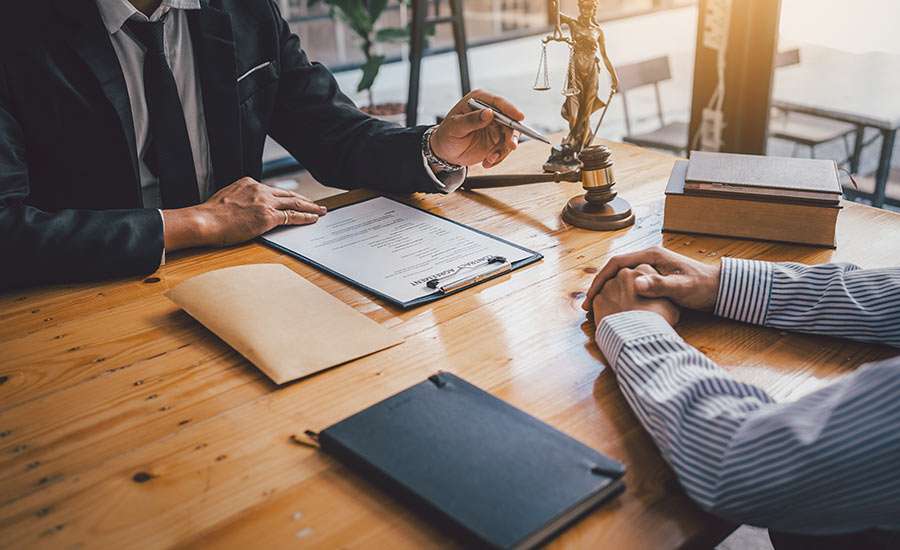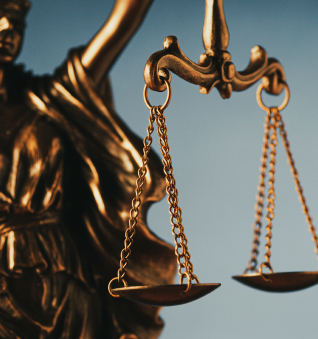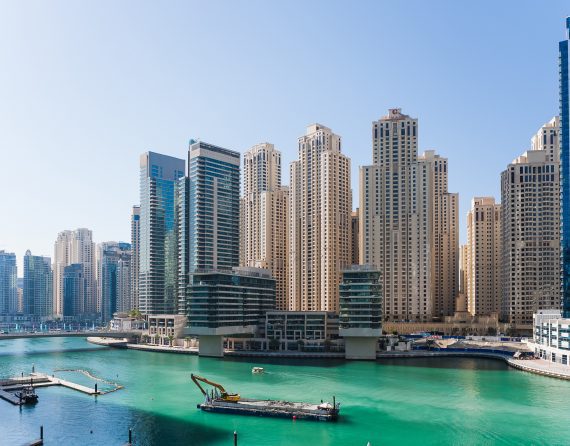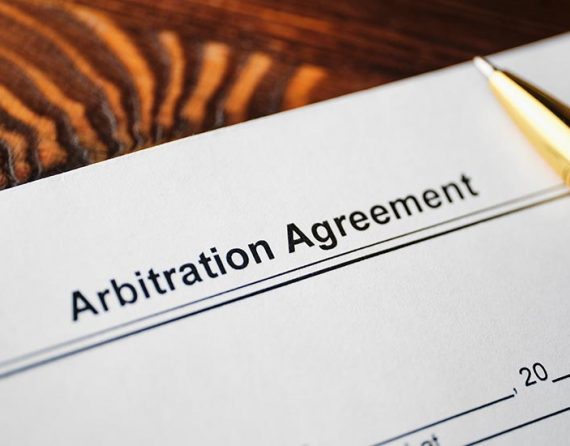Whether you’re currently addressing a specific conflict or proactively fortifying against future issues, dispute resolution is an important consideration for sports that cross national boundaries.
We’ll explain the role of arbitration in sports dispute resolution, highlight the benefits of this approach, and offer insights on dispute resolution from our attorneys at Youseff + Partners.
Is Arbitration a Good Way to Resolve Sports Disputes?
Sports arbitration is an ideal way to resolve sports disputes, as it allows for the swift handling of conflicts by knowledgeable arbitrators.
In sports dispute resolution, arbitration:
- Provides targeted resolution strategies
- Involves reduced legal formalities
- Helps preserve professional relationships
- Offers global recognition and the enforcement of decisions
- Allows flexibility in procedure and decision-making
- Facilitates the potential for creative solutions

Benefits of Arbitration in Sport Dispute Resolution
The role of arbitration in sports dispute resolution is to provide a specialized, efficient, and globally recognized system for addressing and settling disputes within the sports industry.
Arbitrators hear the cases and render binding decisions that are typically final, with very limited avenues for appeal. This system ensures that disputes are handled in a manner that is both sensitive to the time constraints inherent in sports and respectful of the confidentiality of the parties involved.
The key roles of arbitration in sports dispute resolution include:
Specialized Arbitration Platform
Arbitration offers a specialized platform where expert arbitrators understand the nuances of sports law and industry practices.
A notable example of a specialized platform for sports arbitration is the Qatar Sports Arbitration Tribunal (QSAT). Established in Doha, Qatar, QSAT serves as an independent body to resolve sports-related disputes in the region.
QSAT handles a variety of sports disputes, including those related to contracts, disciplinary issues, and doping cases.
Swift Resolution
In many cases, arbitration can provide swift dispute resolution, which is essential in a field where timing can affect athletes’ careers and competition schedules.
A prime illustration of the rapid pace in sports arbitration is the temporary operation of the Court of Arbitration for Sport’s (CAS) ad hoc division, which functions exclusively during certain international sports events like the Olympics or the FIFA World Cup.
As per the Ad Hoc Rules for the Olympic Games, decisions from this division are expected within 24 hours after filing for arbitration, while for the FIFA World Cup, the corresponding timeframe is 48 hours.
Privacy Protection
Arbitration safeguards confidentiality, thereby ensuring privacy and preserving the reputations of all parties involved.
For example, if a high-profile athlete faces allegations of doping, the arbitration process would be conducted behind closed doors, with all proceedings, evidence, and testimonies kept confidential. This approach ensures that the athlete’s reputation and privacy are protected while the investigation is underway.
Binding and Enforceable Decisions
Arbitration guarantees decisions that are both legally binding and enforceable, with their outcomes acknowledged and respected across multiple international jurisdictions.
For example, in a scenario where a European soccer club and a Middle Eastern soccer club disagree over the transfer fee for a player, the case would be taken to an international sports arbitration body like the Court of Arbitration for Sport (CAS).
The initial procedures at CAS involve the filing of a written request for arbitration, followed by the selection of arbitrators and the exchange of written submissions between the parties. These submissions include the statement of claim, the statement of defense, and any counterclaims.
For the appeal procedures, an appeal against the decision of a federation, association or sports-related body may be filed with CAS if the statutes or regulations of the said body so provide. For instance,if a party is not satisfied with a decision made by the FIFA Dispute Resolution Chamber (“FIFA DRC”), they can appeal to CAS. This appeal procedure at CAS is governed by specific rules set out in the CAS Procedural Rules. The process begins with the filing of an appeal, which must be done within a specified timeframe following the FIFA DRC decision. The appeal involves a review of the case by a panel of CAS arbitrators, who may hold a hearing if necessary.
After the arbitration process, CAS would issue a decision, determining the appropriate transfer fee based on the contract and applicable regulations. This decision would be binding, meaning both clubs would be legally obligated to comply with the ruling.
Stay Updated

Flexible Procedures
Arbitration offers the adaptability to tailor procedures to the unique requirements and context of each sports-related dispute.
For example, if two professional tennis players have a dispute over endorsement contract terms, an in- person arbitration hearing might be impractical, given their international travel schedules and the urgent nature of the dispute. In this scenario, a practical solution could be to conduct a virtual arbitration session, allowing both players to participate remotely from any location.
Maintained Relationships
Arbitration fosters the maintenance of positive relationships in the sports community, offering a less confrontational approach compared to conventional court litigation.
For example, in a dispute between an athlete and their sports club over contract terms, the two parties opt for arbitration instead of engaging in a public court battle.
In this arbitration setting, the focus is on finding a mutually agreeable solution, rather than declaring a winner or loser as in a court case. This approach allows both the athlete and the club to discuss their concerns in a more collaborative and less adversarial environment.
Reduced Costs
Arbitration effectively diminishes legal expenses, offering a more economical alternative to the often protracted and costly nature of traditional court proceedings.
For example, if two athletes want to dispute the terms of a shared sponsorship deal, they could choose to resolve their dispute through arbitration, instead of hiring separate legal teams.

The Role of The Court of Arbitration for Sport
The Court of Arbitration for Sport (CAS) is a central institution in the sports law landscape, designed to provide a neutral arbitration service specifically for the sports world.
The role CAS plays in the sports dispute resolution process includes:
- Adjudicating disputes: CAS resolves legal conflicts that arise in sports, including those related to contract issues, doping, qualification, and disciplinary actions.
- Providing finality: The court’s decisions are generally final and binding, offering a definitive resolution to often complex disputes.
- Ensuring expertise: Arbitrators selected from CAS lists have specialized knowledge in sports law and the particularities of sports disputes.
- Enforcing global authority CAS awards are recognized and enforceable worldwide under the New York Convention, a international treaty that provides for the recognition and enforcement of foreign arbitral awards. This global acknowledgment underpins the international authority and credibility of CAS’s decisions.
- Offering mediation: Apart from arbitration, CAS also provides mediation services, which can be a less formal, cooperative way to resolve disputes.
- Creating faster procedures: For urgent matters, such as those arising during sporting events, CAS can provide fast-track decisions.
- Handling various cases in sport law: By handling a wide array of cases, CAS contributes to the harmonization of legal standards and practices across different sports and jurisdictions.
Adding to these roles, it’s important to include the aspect of “Legal Aid under CAS”. CAS provides legal aid to parties who may not have sufficient financial means to pursue a case. This legal aid program ensures that access to justice within the sports arbitration domain is not restricted to only those who can afford it.
This aspect of legal aid is crucial in maintaining fairness and equality in the sports arbitration process, as it allows athletes and other parties, who might otherwise be unable to participate in the arbitration process due to financial constraints, to have their disputes heard and resolved.
Sports Disputes That Require Arbitration
Arbitration is frequently called upon to resolve a range of disputes within the sports sector. Some of the most common scenarios that require arbitration include:
- Contractual disagreements: Issues arising from the interpretation, enforcement, or breach of contracts involving athletes, coaches, clubs, and agents
- Transfer disputes: Conflicts related to the transfer of athletes between teams, including disputes over transfer fees and terms
- Doping allegations: Cases involving violations of anti-doping regulations, where arbitration determines the appropriate consequences for athletes or supporting personnel
- Disciplinary actions: Disputes arising from disciplinary measures taken against athletes or officials, often following on-field incidents or conduct violations
- Eligibility issues: Questions over an athlete’s eligibility to compete due to nationality, age, qualification standards, or breaches of selection policies
- Governance disputes: Challenges to decisions made by sports governing bodies, including the interpretation and application of rules and regulations
- Commercial litigations: Conflicts arising from sponsorship deals, broadcasting rights, and merchandising agreements
- Employment-related issues: Disagreements related to employment and labor issues within sports organizations, including wrongful termination and discrimination claims
- Event hosting disputes: Issues related to the staging of sports events, including disagreements over hosting rights and responsibilities
- Intellectual property disputes: Cases involving the use of trademarks, branding, and image rights in the sporting context
Dispute Resolution and Sports Arbitration at Youssef + Partners
Youssef + Partners stands at the forefront of managing and resolving sports disputes, recognized for our strategic approach to crisis management and pre-dispute resolution.
As a leading firm for arbitration in the MENA region, we are dedicated to delivering not just expert legal advice, but also forward-thinking solutions that emphasize crisis prevention and effective dispute resolution.
Our sports arbitration services include:
- Advising on, negotiating, formulating, and examining contracts for athletes, including employment agreements, sponsorships, broadcast deals, and marketing and advertising arrangements
- Resolving conflicts related to sports contracts, player transfers, doping charges, and disciplinary actions
- Representing athletes, coaches, agents, sports clubs, and federations in both litigation and arbitration cases in national courts, diverse sports federations’ dispute resolution systems, and the Court of Arbitration for Sport (CAS)
- Managing doping-related cases before national anti-doping agencies and the World Anti-Doping Agency (WADA)
- Providing guidance on establishing and managing sports organizations, including creating rules and regulations, and offering advice on adhering to legal and regulatory standards
Navigating the intricacies of sports disputes requires expert help, and Youssef + Partners is equipped to offer that guidance.
We serve clients in sports dispute resolutions across the MENA region, with a significant presence in cities known for their vibrant sports scenes. We offer services in Cairo, Doha, Dubai, Abu Dhabi, and Ras El Khaimah, and extend our expertise to jurisdictions such as Turkey, Lebanon, and Kuwait.
Whether you’re an athlete, coach, or agent seeking to protect yourself from potential disputes in international sports contracts, or you require expert arbitration services for sports-related disagreements, our team can help.




